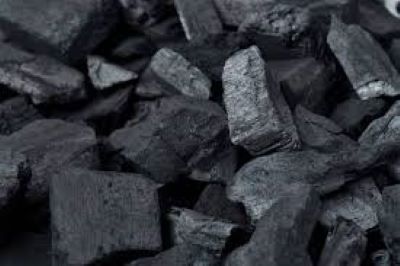As the cost of gas and kerosene continues to rise, more and more households in Sokoto State are switching to charcoal as an affordable alternative for cooking. The surge in demand is providing a significant boost to charcoal vendors across the state, as families seek more cost-effective ways to prepare meals.
Charcoal, produced by heating wood in a low-oxygen environment, has long been a popular fuel source, but it is now seeing a resurgence due to its affordability compared to other options. Modern charcoal briquettes, often used for outdoor cooking, can also contain additives like coal, making them more accessible for daily use.
Charcoal vendors thrive amid economic pressures
Mr. Bello Ali, a well-known charcoal seller on Offa Road, attributes his business success to the recent hike in fuel prices. “I get deliveries every Monday morning or Sunday evening, so I don’t need to go to the market myself,” he said. Ali sells a full bag of charcoal for N7,000, a half bag for N3,200, and smaller packages tied in black nylon for N350.
His sales are steady, with weekly orders of 15 to 20 bags to cater to the bustling Offa Road, where restaurants and individuals alike buy from him. “Gas is expensive, but for just N350, families can cook without worrying about running out of fuel,” he explained.
Affordable and accessible for everyday use
In Dambuwa, Mrs. Hajara Suleman also reports increased sales of charcoal and firewood. She sources her charcoal from a supplier in Bodinga, though higher transport costs have driven up her prices. “I sell a full bag of charcoal for N7,500 now, compared to N3,000 before fuel prices went up,” she said.
Despite this, charcoal remains a cheaper and more flexible cooking option for many households.
“People can buy what they need today and return tomorrow. Charcoal doesn’t require refills like gas, and it’s easier to use for meals like beans,” she added.
Small-scale vendors adjust to rising demand
For Mrs Ruth Ahmad, who sells charcoal from her home on Abdullah Kure Road, the rise in demand has provided a stable source of income.
“I buy a bag of charcoal for N6,700 every two days, divide it into smaller portions, and sell it in black nylon bags. I usually make about N10,000 to N11,000 per bag,” she explained.
Her regular customers include those who sell pap in the mornings and families who cook with charcoal daily. “It takes just over a day to finish a bag before I go for another one,” she noted.
Consumers adapt to new cooking methods
The shift from gas to charcoal has not been without challenges. Miss Linda Godwin, a recent convert to charcoal cooking, shared her initial struggles. “I used to cook with gas, but with prices going up, I had to switch to charcoal. At first, I didn’t like it—my pots turned black, and I had to fan the fire myself,” she explained. Despite the effort, she found that meals cooked with charcoal, especially dishes like moi moi, tasted better.
Similarly, Mrs. Fumilayo Olaniyi, who uses charcoal for her daily cooking, prefers it over gas and stoves. “I started cooking with a stove, but the taste is different. With gas, I never really enjoyed the flavour of my food. Charcoal always brings out the best taste, even when I don’t use many ingredients,” she said.
Data from the National Bureau of Statistics (NBS) reveals a significant rise in the average retail price for refilling a 12.5kg cylinder of Liquefied Petroleum Gas (LPG), commonly known as cooking gas. Between August 2023 and August 2024, the price surged by 69.15%, jumping from N9,194 to N15,552.
While the NBS did not specify the reasons for the sharp increase, inflation has been on an upward trend, reaching a peak of 34% before slightly easing to 32.15% in August 2024, down from 33.40% in July.


